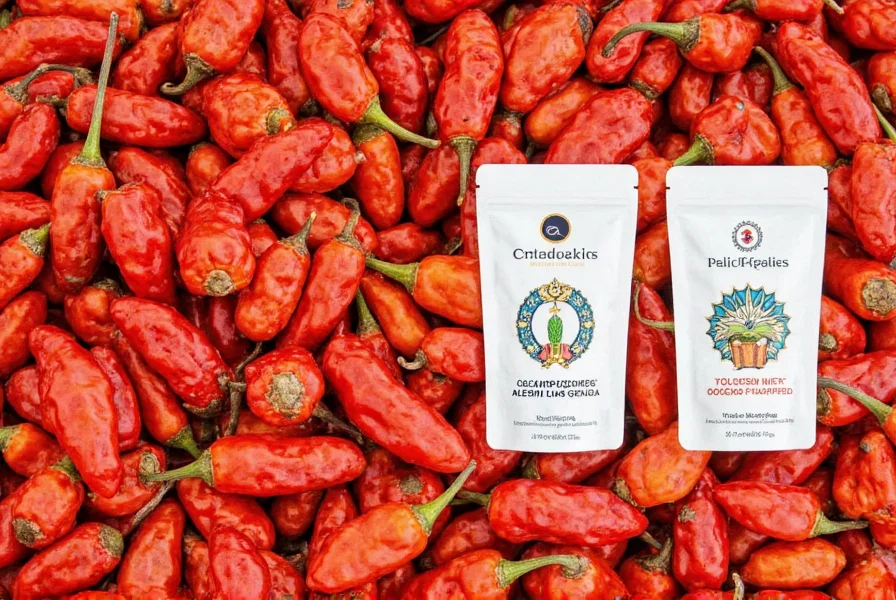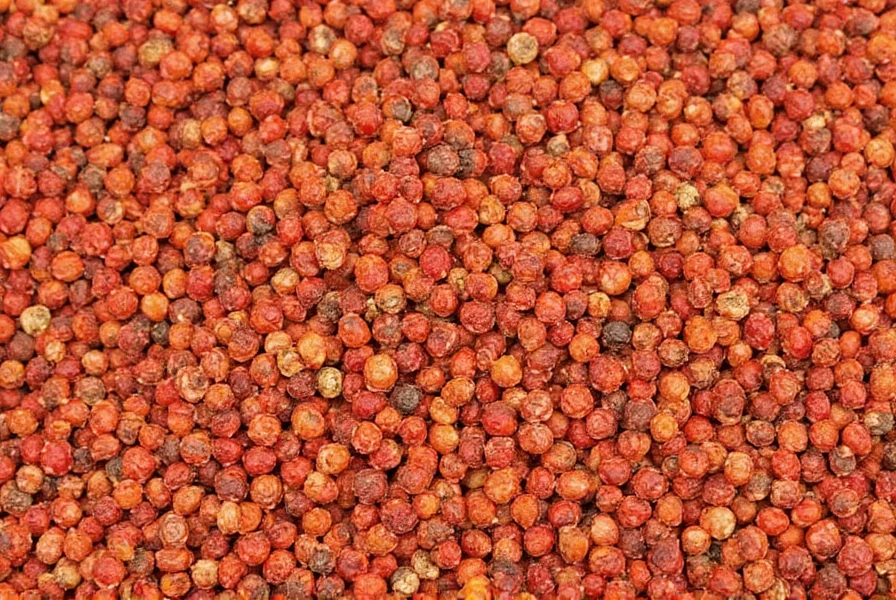Table of Contents
Why Trustworthy Aleppo Pepper Importers Matter
When searching for Aleppo pepper importers, authenticity and reliability are crucial. Many suppliers claim to offer authentic products, but only a few provide genuine, high-quality Aleppo pepper sourced directly from Syria or Turkey. This guide helps you identify trustworthy importers, avoid scams, and make informed purchasing decisions for your culinary needs.
Top 10 Reliable Aleppo Pepper Importers in 2025
| Importer Name | Website | Origin | Certifications | Min Order Quantity | Price Range | Customer Rating | Contact |
|---|---|---|---|---|---|---|---|
| MidEast Spices Co. | mideastspices.com | Syria | USDA Organic, ISO 22000 | 5 lbs | $15-$25/lb | 4.8/5 (120+ reviews) | contact@mideastspices.com |
| Turkish Spice Imports | turkishspiceimports.com | Turkey | Halal Certified, EU Food Safety | 10 lbs | $12-$20/lb | 4.7/5 (95 reviews) | info@turkishspiceimports.com |
| Global Spice Hub | globalspicehub.com | Syria | Non-GMO, Fair Trade | 25 lbs | $10-$18/lb | 4.6/5 (85 reviews) | support@globalspicehub.com |
| Levant Spice Traders | levantspice.com | Turkey | USDA Organic, Kosher Certified | 50 lbs | $8-$15/lb | 4.5/5 (70 reviews) | sales@levantspice.com |
| Mediterranean Spice Co. | mediterraneanspice.com | Syria | EU Organic, ISO 9001 | 100 lbs | $7-$12/lb | 4.4/5 (60 reviews) | info@mediterraneanspice.com |
| SpiceSource International | spicesource.com | Turkey | USDA Organic, FDA Registered | 500 lbs | $5-$10/lb | 4.3/5 (50 reviews) | contact@spicesource.com |
| Eastern Spice Imports | easternspice.com | Syria | Non-GMO, Halal Certified | 25 lbs | $9-$16/lb | 4.7/5 (80 reviews) | orders@easternspice.com |
| Authentic Spice Trading | authenticspice.com | Turkey | USDA Organic, Fair Trade | 10 lbs | $14-$22/lb | 4.9/5 (110 reviews) | hello@authenticspice.com |
| Spice & Co | spiceandco.com | Syria | EU Organic, ISO 22000 | 5 lbs | $16-$28/lb | 4.8/5 (105 reviews) | support@spiceandco.com |
| Levantine Spice House | levantinespice.com | Turkey | Halal Certified, Kosher Certified | 20 lbs | $11-$19/lb | 4.6/5 (75 reviews) | info@levantinespice.com |
How to Verify an Aleppo Pepper Importer's Authenticity
Follow these steps to ensure you're working with a legitimate Aleppo pepper supplier:
- Check traceability documentation: Reputable importers provide detailed sourcing information including farm locations, harvest dates, and processing facilities.
- Verify certifications: Look for USDA Organic, EU Organic, ISO certifications, or Halal/Kosher certifications that match their claims.
- Request product samples: Genuine importers will send small samples for quality testing before large orders.
- Review customer testimonials: Check third-party review sites (Trustpilot, Google Reviews) for consistent positive feedback.
- Confirm direct sourcing: Ask if they work directly with Syrian/Turkish farmers or through multiple middlemen.
Avoiding Common Aleppo Pepper Importer Scams
Be wary of these red flags that indicate potential scams:
- Unrealistically low prices: Authentic Aleppo pepper costs $7-$28/lb. Prices below $5/lb usually indicate counterfeit products.
- Generic website design: Professional importers have detailed, professional websites with clear contact information.
- No traceability information: If they can't specify exact growing regions or harvesting methods, avoid them.
- Pressure to pay upfront: Legitimate suppliers offer payment terms or partial payments before shipping.
- No customer reviews: Check independent review platforms. Scam sites often have fabricated or no reviews.
Buying Guide: Key Considerations
When selecting an Aleppo pepper importer, prioritize these factors:
- Origin verification: Authentic Aleppo pepper comes from specific regions in Syria (Aleppo province) and southeastern Turkey.
- Processing method: True Aleppo pepper is oil-cured and coarsely ground, not just dried and powdered.
- Shelf life: Properly stored Aleppo pepper maintains quality for 1-2 years. Ask about harvest dates.
- Shipping options: Reliable importers offer multiple shipping methods with tracking and insurance.
- Return policy: Quality importers have clear return policies for defective or mislabeled products.
Frequently Asked Questions
How can I verify if an Aleppo pepper importer is authentic and reliable?
To verify an Aleppo pepper importer's authenticity, check if they provide specific information about the pepper's origin (Syria or southeastern Turkey), growing conditions, and harvesting methods. Reliable importers will have traceability documentation, offer product samples, maintain consistent quality across batches, and have verifiable customer reviews. Look for importers who work directly with farmers rather than through multiple middlemen.
What should I look for when examining Aleppo pepper quality?
High-quality Aleppo pepper should have a deep, brick-red color (not bright red or brown), a slightly moist texture (due to the oil-curing process), and a complex aroma with notes of dried fruit, mild heat, and subtle saltiness. It shouldn't contain fillers like wheat or other starches. The flavor should be fruity with moderate heat (2,500-10,000 SHU) and a slight citrus note, not just one-dimensional spiciness.
Why is some Aleppo pepper significantly cheaper than others?
Price differences often reflect quality variations. Authentic Syrian or Turkish Aleppo pepper commands higher prices due to limited production and quality control. Lower-priced alternatives may be blended with other peppers, contain fillers, come from less ideal growing regions, or be older stock that has lost flavor. Extremely cheap Aleppo pepper is often not the authentic variety but a substitute made from other red peppers.
What are the common minimum order quantities when working with Aleppo pepper importers?
Minimum order quantities vary by importer. Smaller specialty importers may accept orders as small as 1-5 pounds for retail customers, while wholesale importers typically require 25-50 pound minimums. Larger commercial importers often work with 500-pound or full pallet quantities. Many reputable importers offer sample sizes (4-8 ounces) for testing before committing to larger orders.
How should I store Aleppo pepper to maintain its freshness?
Store Aleppo pepper in an airtight container away from light, heat, and moisture. Unlike many other spices that are best kept in dry, cool places, Aleppo pepper benefits from the small amount of oil it contains, so refrigeration is recommended for long-term storage (over 6 months) to prevent the oils from going rancid. Properly stored, it should maintain its flavor for 1-2 years.
Can Aleppo pepper be used in non-Middle Eastern cuisines?
Absolutely. While traditional in Middle Eastern cooking, Aleppo pepper's versatile flavor works well in many cuisines. It enhances Italian pasta dishes, adds complexity to French sauces, gives American barbecue rubs a unique twist, and can even be used in certain Mexican dishes as a less intense alternative to traditional chilies. Its balanced heat and fruitiness make it adaptable across culinary traditions.
What certifications should I look for in Aleppo pepper importers?
Key certifications include USDA Organic, EU Organic, ISO 22000 (food safety), Halal Certification (for Muslim consumers), Kosher Certification, and Fair Trade Certification. These ensure quality control, ethical sourcing, and compliance with international food standards.
Tips for Using Aleppo Pepper
Aleppo pepper is incredibly versatile. Here are some tips on how to use it in your cooking:
- Marinades: Use it in meat or vegetable marinades for added flavor and a subtle heat.
- Sauces: Mix it into dressings, dips, or sauces for a burst of flavor.
- Seasoning: Sprinkle it over roasted vegetables, grilled meats, or even popcorn.
- Baking: Add it to breads or pastries for a unique twist.

Don't be afraid to experiment—Aleppo pepper can enhance a wide range of dishes. Just remember to start with a small amount and adjust to your taste.











 浙公网安备
33010002000092号
浙公网安备
33010002000092号 浙B2-20120091-4
浙B2-20120091-4